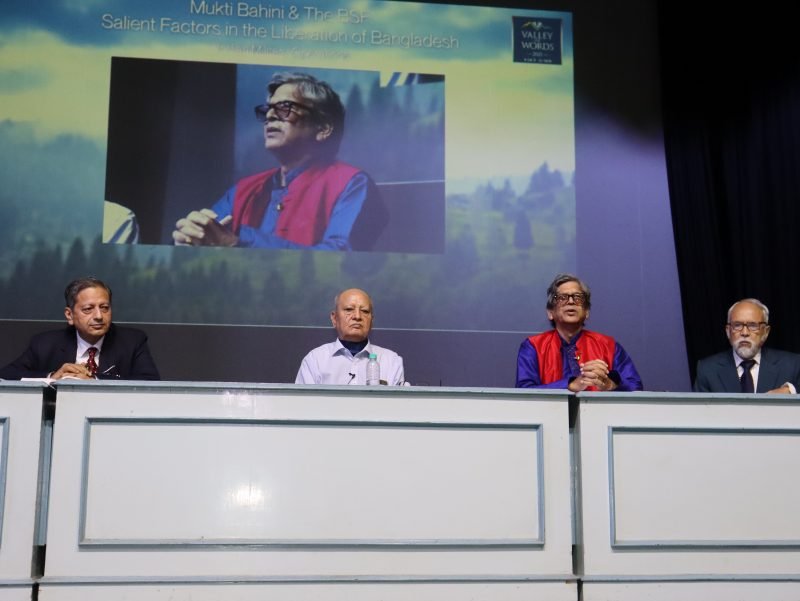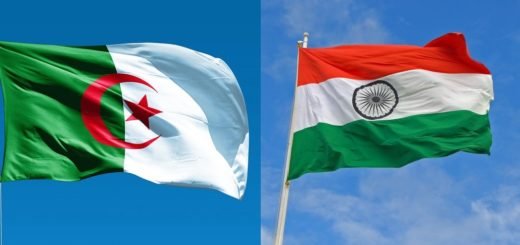Indian Military operations: 1971 — The war which shaped the subcontinent [Event]

This year marks the 50th anniversary of the war between India and Bangladesh. A delightful and informative two-day event on military history and strategy, focusing on the 1971 war, was conducted at United Service Institution of India (USI), a national security and defence services think tank based in New Delhi, India on October 9th and 10th, 2021. The festival was a part of several literature and arts festivals that Valley of Words (VoW), a literary organization based in Dehradun, conducts annually. This episode on military history and strategy was first among many theme-centric festivals that VoW is going to pull off in the coming weeks. It brought together army veterans of India and Bangladesh, diplomats and authors to the table, to provide a hindsight view of the 1971 war.
Here are the excerpts from the session titled “Indian Military Operations”
1. Mukti Bahini and the BSF: Salient Factors in the Liberation of Bangladesh
A bilingual session, chaired by L.C. Bajpai, was a moving session on the way Bangladesh was formed and the role of Mukti Bahini in the liberation. By and large, the session was focused on the discussion of the celebrated book by V.K. Gaur, “Yoon Janma Bangladesh”.
Dr, Sanjeev Chopra pointed out that there is a lack of vernacular accounts on the India- Bangladesh war, and due to that, subaltern perspectives, which are mostly in vernacular, get neglected. V K. gaur’s book was one of the first texts in Hindi that talked about the 1971 war.
V.K Gaur mirrored Dr Chopra’s concern and said that with the lack of vernacular texts for the soldiers, they are not able to get closure with the 1971 war. To this end, Gaur picked up Saurya Gathaye (stories of valor) from his book for the, for instance, the battle fought at Kila Bada by the BSF soldiers wherein nine soldiers fought till the last bullet.
He talked about Rustom, the protagonist of Yoon Janma Bangladesh and his role in training the fighters of Mukti Vahini. Training centers were set up for Mukti Bahini and Bangladeshi youth were trained by the elite Indian military forces to wage a war against the Pakistani army.
He also outlined the role of nation-making of Bangladesh by Rustom. Constitution-making, designing of the Bangladeshi flag and the national song Sonar Bangla were among the few initiatives taken by the BSF under the supervision of Rustom.
Most importantly, he stressed how BSF was involved in humanitarian assistance to the Bangladeshi people who were pouring on the Indian border with East Pakistan from the persecution waged by the Pakistani army. The BSF set up camps for the persecuted Bangladeshis including women and children in the bordering villages and in the words of Gaur “made them feel at home”. The BSF also saved Bangladeshis, perceived as supporters of the Pakistani army, from the wrath of Mukti Bahinis.
Lt Col. B.B. Singh noted the frailties of Mukti Bahini and the popular perception that the fighters of Mukti Bahinis were incapable and wanting. Although, he didn’t ascribe to the popular perception and highlighted the perseverance of Mukti Bahini in their fight against the Pakistani army. In particular, he mentioned, “Operation Jackpot” codename for three operations undertaken by Mukti Bahini against Pakistan during the climax of the Bangladesh Liberation War. The goal was to attack Pakistani forces and sabotage military and economic assets to demoralize the Pakistani soldiers and disrupt their supply network.
As with any ethnic militia gory violence is rampant and so was true for Mukti bahini. In this regard, Lt Col Singh highlighted the self-destructive tendencies in the Mukti Bahini who would kill their own members and destroy quintessential modes of communication like roads and bridges.
Moreover, Lt Col Singh said that Mukti Bahini appreciated the bravery of the Indian army. For them the Indian army “would lead from the front” which was completely different from how the Pakistani army fought. Although Lt Col Singh repented the fact that Bangladesh, in the aftermath of the liberation of Bangladesh, was shy of honoring the valor of Indian soldiers. Some families of the Indian army, however, were recognized and were called to Bangladesh by the government.
To sum up, this session was rather a warm recollection of anecdotes from the lives of military veterans including BSF and the Indian army.
Watch the full video on Youtube: Indian Military Operations: Mukti Bahini & the BSF: Salient Factors in the Liberation of Bangladesh
2. Military lessons of 1971 war
The session was presided by Maj gen B.K. Sharma in dialogue with Lt. Gen V. K. Ahluwalia and Lt. Gen Prakash Menon highlighting the military campaign of the 1971 war. Pakistan was prolific in its military expansions in securing the external limits of East Pakistan, however, they took no heed to bind Dhaka strongly, which was the centre of gravity to the Bengali mass. This was primordially under the impression by the Pakistani government that India’s national interest lies in military ventures only along certain factions at its territorial boundaries and Dhaka, was not on of them. While in the west, Pakistan solely believed in adhering to the principles of offensive defence, it launched attacks in sectors of Poonch, Rajasthan, Chaam with the belief of receiving foreign aid and assistance from the Global superpowers.

The vision of foreign intervention by the USA, UK and China never took off. India’s broad strategy was a classic case with four main strata to introspect coupled with a paradrop at Tangail by the 2nd Battalion of Parachute Regiment, Heliborne Operation at Sylhet and an amphibious landing at Cox Bazar. The greatest force multiplier that caused the Pakistani Army to renounce its defeat in its own heartland within a week and a half was the Mukti Bahini. At the end of the military expedition, 93000 prisoners of war were in India’s control, however, India ended up bartering a huge chunk of territory in return to a relatively small fraction of land being captured by the Pakistanis. An exchange took place, creating the cease-fire line to be the Line of Control (LOC), coaxing the Kashmir conflict issue to remain in place but what emerged more as a concern was a deep feeling of settling the scores for the loss encountered within the psychology of Pakistani military.
Lt. Gen V. K. Ahluwalia recollected his affiliation with the 1971 war where his course mates were stationed at both the fronts, keeping the enemy in check, at the cost of sacrificing their lives, within just three weeks of being newly commissioned officers in the Indian Army. On 22nd Feb of the very year, General Yaya Khan made a shocking move of declaring that the governing power of East Pakistan shall not be handed over to Sheikh Mujibur Rehman’s Awami League which caused civil unrest, mass protest and military crackdowns. The leadership of Pakistan was questionable owing to discrimination, deprivation, lack of governance which called for a political solution.
Lt. Gen Prakash Menon spoke about his personal experience on encountering a humanitarian act with a Pakistani military surgeon who didn’t hesitate a bit, saving the life of an Indian soldier who was wounded in the course of military engagements. Each war carries a uniqueness that is permanently etched in the sands of time starting from its political objective, military operational strategies at play, tactical actions which remains relevant to all types of war irrespective of time.
Watch the full video on Youtube:
Indian Military Operations: Military Lessons of 1971 War – Valley of Words 2021


















